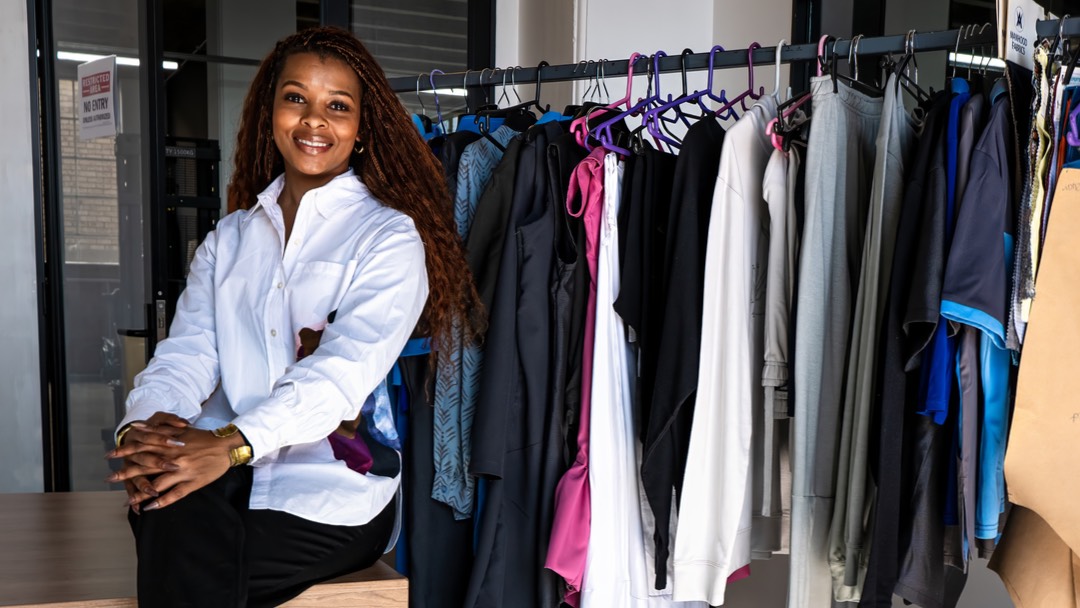Against the Odds: How Two SMEs Are Reviving Industry with Grit, Innovation and IDC Backing
Caption:
Latlou Logistics co-founders Thapelo (left) and Thato Balepile (right)
📷 SUPPLIED
South Africa’s industrial economy remains heavily concentrated, with a few large players holding sway across key sectors. This dominance often suffocates emerging businesses, so much so that 70% to 80% of SMEs fail within five years. But two companies, Latlou Logistics and Reapsew, are defying the odds and thriving in some of the country’s most competitive and complex sectors.
Latlou Logistics, founded in 2007 by Northern Cape husband-and-wife duo Thapelo and Thato Balepile, specialises in transporting mining commodities. Johannesburg-based Reapsew, started in 2010 by entrepreneur Mahlatsi Mashile, manufactures custom-designed garments, personal protective equipment and uniforms across several segments.
While their industries and approaches differ, both companies are powered by the same traits: determination, adaptability and long-haul resilience.
Freight in Flux
For Latlou, opportunity emerged from taking advantage of constraints in South Africa’s rail infrastructure, which forced more freight off tracks and onto the roads. With more than 76% of land freight now hauled by trucks, logistics firms like Latlou have stepped in to fill the void.
Thapelo Balepile says running a transport business demands patience and the ability to constantly problem-solve. “You have to expect the unexpected every day. Emotional intelligence and quick thinking are everything in this business.”
Although government has plans to shift 10% of road freight back to rail, projections from Modor Intelligence suggest the freight and logistics market will continue growing, reaching $19.9bn by 2030, up from $14.7bn in 2025.
Sewing Success
Reapsew operates in the once-thriving clothing, textiles, footwear and leather (CTFL) sector, now widely dismissed as a “sunset industry”. The sector was decimated by a flood of low-cost Asian imports and de-industrialisation, leading to huge job losses and a skills drain.
Mashile first entered the industry supplying blankets during the 2010 FIFA World Cup and later uniforms to churches. But it was subcontracting to major manufacturers that revealed the long-term potential. “That experience planted the seed for something greater,” she says.

Caption:
Mahlatsi Mashile, Reapsew founder📷 SUPPLIED
Still, the road has not been easy. Reapsew has struggled with capital access, a shortage of skilled machinists and pattern-makers and a constant battle to match the artificially low prices of Chinese competitors. “It’s unrealistic,” Mashile notes. “We’re expected to match prices despite vastly different labour conditions and production scales. It often means working at a loss.”
The Catalyst for Growth
Both businesses received targeted funding and support from the Industrial Development Corporation’s Small Business Finance and Regions (SBF) unit and the SME-Connect programme, which was created to bolster SMEs in key industrial sectors.
Loan amounts range from R1m to R20m in the SBF unit, with flexible repayment structures that support early-stage businesses. “We don’t wait for businesses to come to us. Our staff actively go out looking for deals,” says Tshepo Ramodibe, IDC’s Head of Corporate Affairs.
The unit also works closely with IDC’s SME-Connect programme, which focuses on market access and pre- and post-investment support. The programme taps into the supply chains of corporates and state-owned enterprises and originated a pipeline of SME funding opportunities to the value of R2.5bn.
Turning Support Into Scale
Latlou Logistics used the SME-Connect relationship between IDC and mining company South32 to acquire funds to service a major contract Latlou has with South32 to transport manganese. As a result, the business expanded its team by 15 people, bringing its total workforce to 34.
Reapsew currently employs 25 workers and is now exploring opportunities within the SME-Connect ecosystem that could see the business double its headcount in the near future.
In a tough economy, both Latlou and Reapsew are showing what’s possible when funding, strategic partnerships and entrepreneurial grit converge to revive sectors once left for dead.
Two trailblazing businesses are leveraging innovation, specialisation and strategic funding to carve niche markets for themselves, proving that ingenuity and resilience can break through even the toughest industry barriers.


